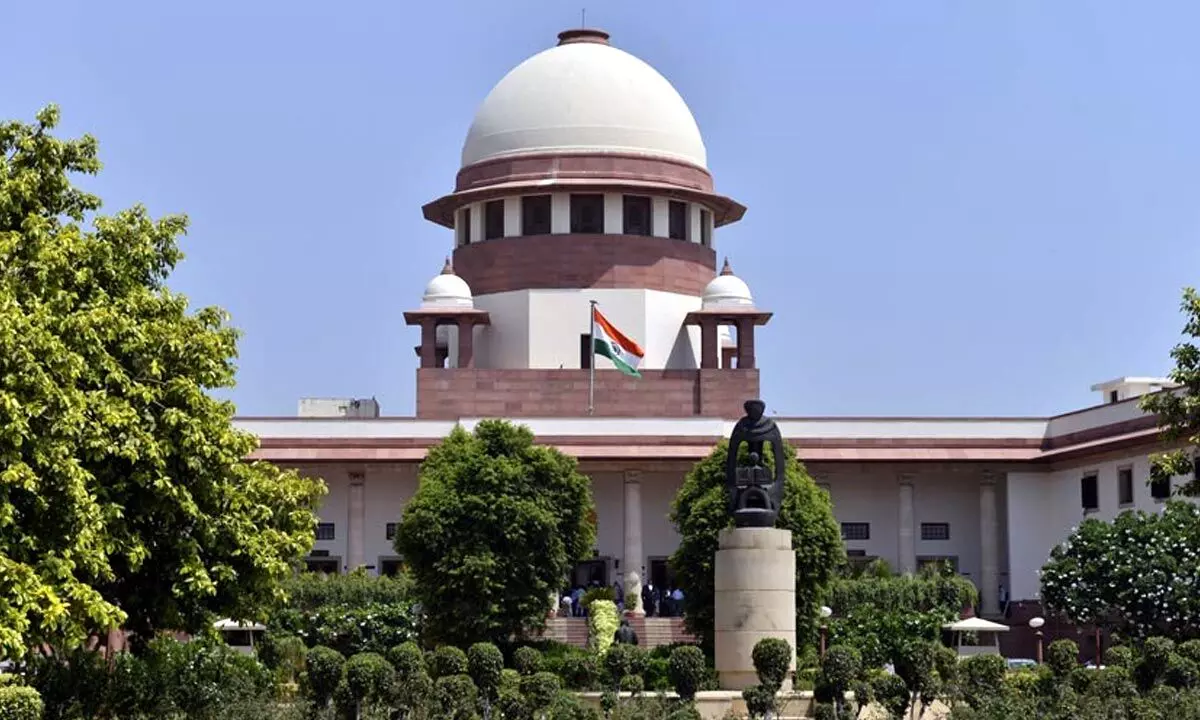Supreme Court agrees to form constitution bench to hear pleas against polygamy, 'nikah-halala'

Supreme Court of India
The Supreme Court on Thursday agreed to reconstitute a constitution bench to hear a clutch of petitions challenging the constitutional validity of the practice of polygamy and 'nikah-halala' among Muslims.
New Delhi: The Supreme Court on Thursday agreed to reconstitute a constitution bench to hear a clutch of petitions challenging the constitutional validity of the practice of polygamy and 'nikah-halala' among Muslims.
On August 30, a five-judge constitution bench comprising justices Indira Banerjee, Hemant Gupta, Surya Kant, M.M. Sundresh, and Sudhanshu Dhulia had issued notice on the petitions. However, two judges -- justice Banerjee and justice Gupta -- have retired now.
On Thursday, one of the petitioners, advocate Ashwini Upadhyay, mentioned the matter before a bench headed by Chief Justice D.Y. Chandrachud and comprising justices Hima Kohli and J.B. Pardiwala, which said it will form a new bench.
A total of nine petitions have been filed challenging the constitutional validity of the practice of polygamy and 'nikah-halala'.
Polygamy allows a Muslim man to have four wives, and once a Muslim woman has been divorced, her husband is not permitted to take her back even if he had pronounced talaq under the influence of any intoxicant, unless his wife undergoes nikah-halala, which involves her marriage with another man, who subsequently divorces her so that her previous husband can re-marry her.
The petitions have been filed by Muslim women and advocate Ashwini Upadhyay challenging the constitutional validity of polygamy and nikah halala. These cases were referred to the five-judge bench by a three-judge bench in March 2018.
In August, the apex court had issued notice to the Centre, National Commission for Women, National Commission for Minorities, Law Commission etc., and scheduled the matter for hearing after Dussehra holidays.
Upadhyay's plea said the injury caused to women as a reult of the practice of triple talaq, polygamy and nikah halala is violative of Articles 14, 15 and 21 of the Constitution and injurious to public order, morality and health.
The plea sought a direction to declare Section 2 of the Muslim Personal Law (Shariat) Application Act, 1937, unconstitutional and violative of Articles 14, 15 and 21 of the Constitution, insofar as it seeks to recognise polygamy and nikah-halala.
"It is well settled that common law has primacy over personal law. Hence, this court may declare that triple talaq is cruelty under Section 498A of the IPC, nikah-halala is rape under Section 375 of the IPC, and polygamy is an offence under Section 494 of the IPC," Upadhyay's plea read.
In August 2017, the top court had held that the practice of triple talaq is unconstitutional and struck it down by 3:2 majority.
In its 2017 verdict, the apex court had kept open the issue of polygamy and nikah-halala, while quashing the practice of triple talaq.
"It is submitted that religious leaders and priests like imams, maulvis etc., who propagate, support and authorise practices like talaq-e-bidat, nikah-halala and polygamy are grossly misusing their position, influence and power to subject Muslim women to such gross practices which treat them as chattel, thereby violating their basic rights enshrined under Articles 14, 15 and 21 of the Constitution," Upadhyay's plea read.
















